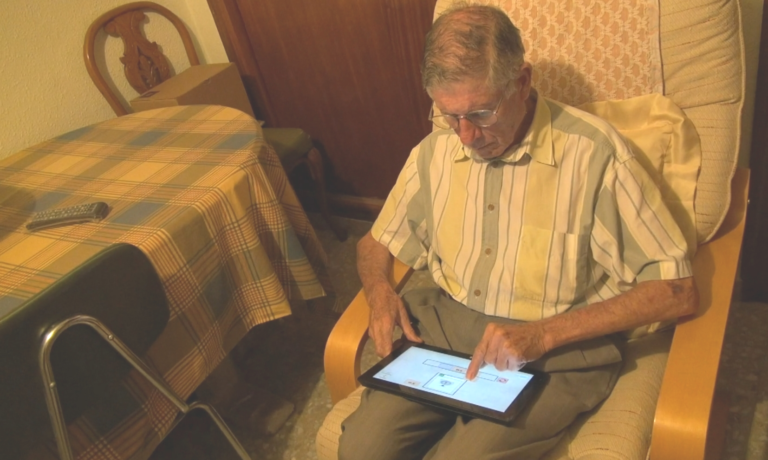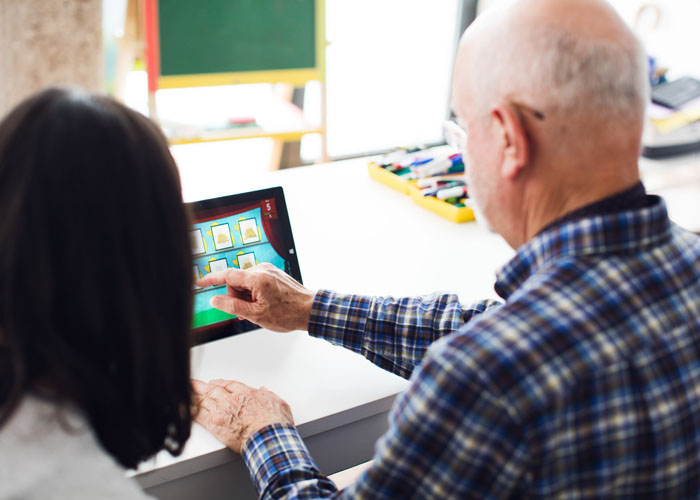Cognitive stimulation

Many of you ask us if Rehametrics can be used for cognitive stimulation. In this post, we would like to give you a longer-than-normal answer. But, before that, I think it is important to clarify what we refer to when we talk about cognitive stimulation. A definition that is normally accepted for cognitive stimulation is the following one:
“Cognitive stimulation refers to all those activities that were designed to maintain or improve cognitive function using memory, perception, attention, concentration, language, executive functions, praxias, visuospatial functions, etc. exercises within structured stimulation programs.”
Furthermore, the most important aspect to keep in mind when using cognitive stimulation is to conserve existing cognitive capabilities so that, through the use of cognitive stimulation, it is possible to maintain the cognitive function for each individual and thus, to slow down the deterioration that occurs with age. From this perspective, cognitive stimulation is very important for older adults to ensure that they maintain an active and fully satisfying lifestyle as they grow older. On the other hand, as one can see at the end of the definition shown above, it is also very important to use structured stimulation programs. Exactly what we refer to we will also see in the next few sections.
Cognitive Stimulation for Adults
As you probably know, as we age physical, cognitive and even behavioral changes take place. However, one of the main aspects that can be affected is our cognitive capabilities. Although this is true, unfortunately most of the time people focus more on maintaining physical aspects instead rather than on conserving the cognitive ones. On the other hand, it is important to mention that, to maintain a higher quality of life as we grow older, we should not forget about our physical or cognitive functions. Both are very important because they are necessary to maintain our functional level over time.
In this way, we finally arrived at that other word that we encounter numerous times and that it is important to define: active ageing. The idea behind “active ageing” was proposed by the World Health Organization (WHO) during the late nineties as a way to substitute a previous concept referred to as “healthy ageing”. Moreover, the WHO defined active ageing as: “the process of optimizing health, participation and safety opportunities with the objective of improving quality of life as individuals grow older” (WHO, 2002).
In other words, active ageing is strongly related to cognitive stimulation.
Mild Cognitive Impairment - Exercises
Similarly, mild cognitive impairment is one of the first warning signs that our body gives us to let us know that something is not working properly and, therefore, that we are losing cognitive capabilities. Moreover, those individuals that find themselves in this situation could greatly benefit from a cognitive stimulation program. As a result, among the main symptoms for a cognitive impairment we find:
- forget things more frequently.
- forget about important events like doctor appointments and social commitments.
- lose your train of thought in conversations or while reading a book or watching a movie.
- feel overwhelmed when having to make a decision.
- start having difficulties to locate oneself in familiar surroundings.
- family members and friends also notice these changes.
Basically, as you can see from the main symptoms above, we would normally be looking at memory, attention, processing speed, working memory and orientation impairments. In this way, we could try to stop this deterioration or, at least, to slow it down by using exercises that stimulate our attention, memory, working memory, processing speed and other cognitive functions that we use every day. If nothing is done, there is a possibility that that mild cognitive impairment keeps progressing towards a dementia.
Cognitive Stimulation for Dementias
On the other hand, one of the “actors” that can also make an appearance as we grow older is dementia. The definition of what is considered to be a “dementia” is as follows:
“Dementia is the loss of cerebral function that occurs as a result of certain diseases. It affects memory, thought, language, judgement and behavior.”
The main conditions behind dementias are Lewy Bodies, Alzheimer’s Disease, Huntington’s Disease and several other conditions. However, Alzheimer’s disease is the main culprit for most dementias.
Although the majority of dementias are irreversible because they are degenerative diseases, cognitive stimulation programs can help slow down their deterioration rate. In this case, it is very important that individuals suffering from mild dementia start participating in cognitive and physical stimulation programs. These programs must be personalized taking into account the needs of each patient and must always be managed by a healthcare professional with experience dealing with dementias. Furthermore, it is also important to design cognitive stimulation programs taking into account the capabilities still conserved by those individuals participating in them.
Rehametrics and Online Cognitive Stimulation

If we keep in mind everything mentioned before, Rehametrics is a very useful tool for clinicians that want to deliver cognitive stimulation programs to their patients. On the one hand, the Rehametrics virtual rehabilitation software allows for the cognitive stimulation sessions prescribed for each patient to be delivered both within a clinical setting (hospital, clinic or nursing home, etc.) or at the patient’s home. The possibility of delivering cognitive stimulation online opens many possibilities and facilitates more intensive treatments.
Furthermore, Rehametrics has more than 110 cognitive exercises with multiple personalization options. Using these exercises, clinicians can design cognitive stimulation programs that are fully personalized to the needs of each patient and that also make use of those capabilities conserved by them. On the other hand, through the use of artificial intelligence algorithms, Rehametrics will constantly assess patient performance while each of the prescribed exercises is being completed. This information is assessed by the algorithm and used to adjust difficulty according to patient performance. In this way, patients will be more motivated during their cognitive stimulation sessions. As you can see, Rehametrics is an excellent tool for cognitive stimulation.


